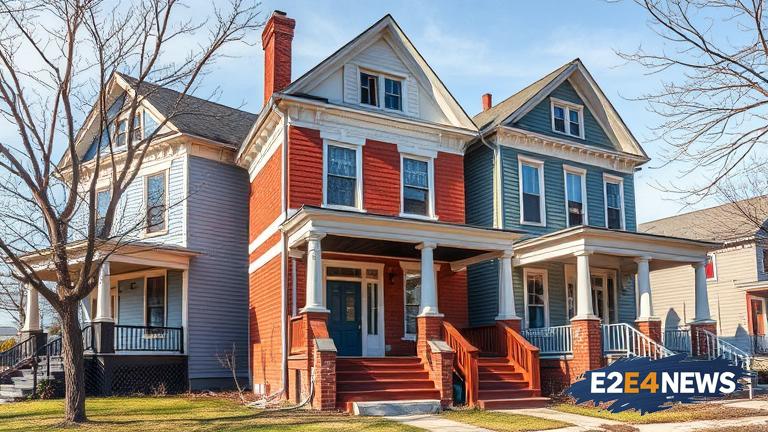The city of Louisville, Kentucky, has launched an innovative initiative to sell vacant homes for just $1, in an effort to breathe new life into neglected neighborhoods and boost the local economy. This ambitious project aims to not only reduce the number of abandoned properties but also provide affordable housing opportunities for low-income families and individuals. By offering these homes at a nominal price, the city hopes to attract investors, developers, and homeowners who can renovate and occupy the properties, thereby increasing property values and reducing crime rates. The program is specifically designed to target vacant homes that have been abandoned for years, with the goal of transforming them into safe and habitable living spaces. According to city officials, there are currently over 5,000 vacant homes in Louisville, with many of them being eyesores that detract from the aesthetic appeal of the surrounding neighborhoods. By selling these homes for $1, the city is essentially giving buyers a chance to own a piece of property at a fraction of its true value, with the understanding that they will invest time, money, and effort into renovating and maintaining the property. The initiative is also expected to create jobs and stimulate economic growth, as buyers will need to hire contractors, plumbers, electricians, and other professionals to repair and renovate the properties. Furthermore, the program is anticipated to increase property tax revenue for the city, as renovated homes will be worth more and thus generate higher tax revenues. In addition to the economic benefits, the initiative is also seen as a way to improve public safety, as vacant homes are often hotbeds of criminal activity. By occupying these homes, the city hopes to reduce crime rates and create safer, more stable communities. The $1 home initiative is also expected to attract new residents to the city, including young professionals, families, and retirees, who are looking for affordable housing options. To be eligible for the program, buyers must meet certain criteria, including being a resident of Louisville, having a good credit score, and agreeing to renovate and occupy the property within a specified timeframe. The city is also offering financial incentives, such as low-interest loans and grants, to help buyers cover the costs of renovation. While the program has been met with enthusiasm from many residents and investors, some have raised concerns about the potential risks and challenges associated with buying and renovating vacant homes. For example, some of these homes may have structural damage, asbestos, or lead paint, which can be costly to repair. Additionally, buyers may need to navigate complex bureaucratic processes and deal with unexpected expenses, such as discovering hidden problems with the property. Despite these challenges, city officials remain optimistic about the potential of the $1 home initiative to transform Louisville’s neighborhoods and economy. They point to similar programs in other cities, such as Detroit and Cleveland, which have successfully revitalized urban areas and attracted new investment. As the program continues to gain momentum, it is likely that we will see a surge in interest from buyers, investors, and developers, all of whom are eager to capitalize on the opportunity to own a piece of Louisville’s real estate at a fraction of its true value. With its rich history, cultural attractions, and vibrant community, Louisville is an attractive destination for people from all over the country, and the $1 home initiative is likely to be a major draw for those looking to relocate to the city. In conclusion, the $1 vacant home initiative in Louisville is a bold and innovative approach to revitalizing the city’s neighborhoods and economy. By providing affordable housing opportunities, stimulating economic growth, and improving public safety, the program has the potential to make a significant positive impact on the city and its residents.
